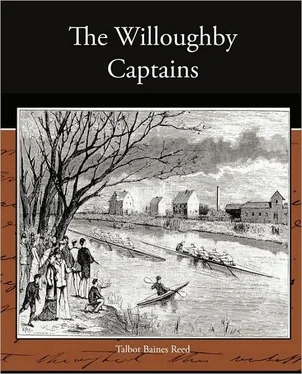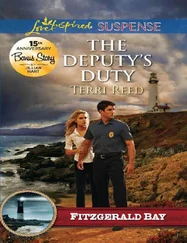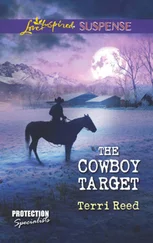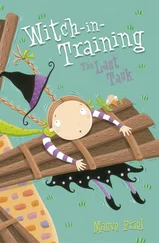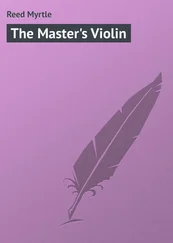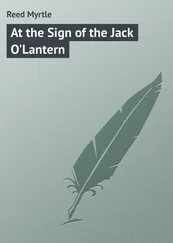And the young heroes laid into their work and made Noah’s Ark forge along at an unwonted pace. Parson busily encouraged them, varying his exhortations by occasional taunts addressed to the other boat.
“Now then,” he shouted, “two to one on us. Come on, you there, jolly schoolhouse louts—”
“Parson, I’ll fight you if you say it again,” interposed Telson by way of parenthesis.
“Oh, beg pardon, old man. Pull away, you fellows! Parretts for ever! No Riddell for us! Three cheers for Bloomfield! You’re gaining, you fellows. Oh, well pulled indeed our boat!”
The schoolhouse boat had slackened speed, and paddling gently alongside, was taking careful note of these audacious youngsters, who, puffing and plunging along, fully believed they were beating the picked four of the rival house by their own prowess.
The big boys seemed amused on the whole, and good-humouredly kept up the semblance of a race for about half a mile, taking care to give the challenging crew a wide berth.
At last, after about ten minutes had been spent in this way, and when the young champions were all, except Parson, fairly exhausted, Crossfield took out his watch and said to his crew, winking as he did so, “Time we turned, you fellows; it’s five o’clock. Easy all, pull bow side! back water, stroke!”
And so saying, the schoolhouse boat suddenly turned round and started off at a smart pace down stream, where it was soon out of reach of the parting taunts and opprobrious noises which Parson, for the credit of his house, continued to hurl at its crew till they were beyond earshot.
Then it suddenly began to occur to these elated young navigators that if it had been time for the four-oar to turn three minutes ago it was possibly time for them to turn also.
“What did he say the time was?” asked King.
“Five o’clock!” said Lawkins.
“Five o’clock! and call-over is at 5:20! We can’t do it in the time!” exclaimed Parson, aghast.
“My eye, what a row there’ll be,” groaned Telson. “I’ve been late for call-over twice this week already, and I’m certain to get reported now!”
“So shall I be,” said Bosher.
“It’s all a vile dodge of those schoolhouse cads,” exclaimed King. “I mean,” said he (perceiving that Telson was about to make a remark), “of those cads. They did it on purpose to make us late. I see it all now. And then they’ll report us. Ugh! did you ever know such blackguards?”
The discovery was too late to be any good — that is, as far as the hope of reaching Willoughby before call-over was concerned. However, it warned them the sooner they turned now the sooner they would get back at all. So they turned viciously and started homewards.
The rowers were all too tired and enraged to talk much, and the journey down stream was silent and gloomy. They heard, about a mile from home, the school bell ringing for call-over, and groaned inwardly when presently it ceased, and they knew their names were being called over and not one of them there to answer. Parson alone made any attempt to keep up the drooping spirits of his crew.
“Never fear. We’ll pay them out, you see. And if they do report us we’ll only get impots. The beasts! I wish we’d run into them and drowned them all! so I do.”
At this point the speaker became aware of an outrigger skiff rapidly approaching them. The rower of course had his back turned, and evidently not expecting anything ahead, was steering himself “over his toes,” as the term is — that is by some landmark behind the boat. Who he was Parson could not make out, but he wore a light-blue ribbon on his straw, and that was enough. Light-blue was the schoolhouse colour. Here was a chance of paying out of the enemy, anyhow!
So he ordered his men to “easy all” and allow the unconscious sculler to come close up. Then when he was within a few yards he started up, and with a wild shout of, “Yah booh, cad!” gave the signal to his crew to pull on, and brought his boat close alongside the skiff. The rower, startled by the sudden shout, turned quickly round.
Horror of horrors! It was Mr Parrett himself!
There was no time to do anything. At the instant he turned, his left scull came into violent contact with the oars of the Noah’s Ark, and was jerked from his hand, and at the same time the light boat gave a violent lurch over and capsized, sending her occupant headlong into the river!
The small boys, pale with fright and dazed by the suddenness of the accident, sat for a moment unable to move or cry out. Then by a sudden wild impulse Parson sprang boldly into the water, followed in a second or two first by Telson, then by Lawkins. The other three held to the oars and waited where they were.
The tide was running down at a good pace, and the river was fairly wide, but there was not much danger to any of the immersed ones. All Willoughby boys could swim, and as Mr Parrett had taught most of them to do so himself, he hardly stood in need of the help of his three pupils. A few strokes brought them all to the bank in safety.
An uncomfortable moment ensued. Mr Parrett said nothing to the three dripping boys who stood before him, but called to the boys in the boat to row in, bringing the skiff with them.
All the while this was being done, Telson and Parson looked despairingly at one another, and darted scared looks at Mr Parrett. He appeared not to notice them, but stood impatiently waiting for the boats.
“Is the scull broken?” he called out as they approached.
“No, sir,” said Wakefield.
The skiff was put in close to the bank, and a brief examination showed that it was not damaged. Mr Parrett got into it, and without saying a word began to push off.
“Please, sir,” cried Parson at this point, feeling that his last chance was going, “I’m so sorry. We didn’t know it was you, sir. It was all my fault.”
“No, sir,” shouted Telson, “it was all my fault. We’re awfully sorry, sir.”
Mr Parrett took no notice of these protestations, but said, quietly, “You’d better get home quickly and change your things.”
So saying he sculled off, with a face hardly less puzzled than the small scared faces which, after watching him go, turned dismally to their own unlucky Noah’s Ark.
On their arrival at the school some half-hour later, Parson, Telson, Bosher, King, and Lawkins were informed that, having been reported for being absent at call-over, the captain wished to see them in his study after breakfast the next morning.
Later on that same evening another notice reached them that they were wanted in Mr Parrett’s room at once.
Chapter Six
Breakers ahead
Mr Parrett was a popular master at Willoughby. He was an old Cambridge “blue,” and it was to his influence and example that the school in general, and Parrett’s house in particular, were chiefly indebted for their excellence in all manly sports. He was the most patient of trainers, and the most long-suffering of “coaches.” Nearly all his spare time was given up to the public service. Every afternoon you would be sure to find him in his flannels running along the bank beside some boat, or standing to be bowled at by aspiring young cricketers in the meadow, or superintending a swimming party up at the Willows.
Boys didn’t give Mr Parrett credit for all the self-denial he really underwent; for he had a way of seeming to enjoy even the drudgery of his self-imposed work, and it rarely occurred even to the most hopeless of “duffers” to imagine that all the trouble spent over him was anything but a pleasure to the master who spent it.
Mr Parrett had his reward, however, in the good will of the boys generally, which he prized highly, and nowhere was he more popular than among the juniors of his own house.
Читать дальше
